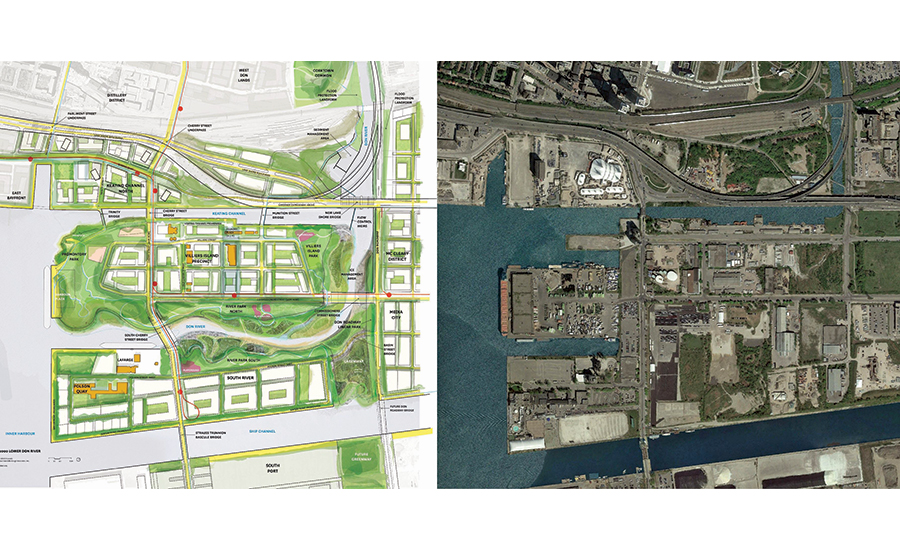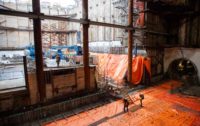The discovery of new environmental risks at what Canadian officials consider a pioneering planned brownfield redevelopment in Toronto has added some $205 million to the project cost. Boosters say the port site makeover and flood protection effort could generate $4 billion in economic impact but the cost increase to more than $932 million raises the stakes for developers, which must secure pledges from federal, provincial and local governments for the bulk of project funding. Just $48 million has been committed so far.
The 25% cost hike for the 600-acre project came after a new due-diligence report found that “flowing sand” and “compressible peat” beneath the site would require added excavation, soil and groundwater treatment, erosion control and materials handling, said Waterfront Toronto, the quasi-governmental group overseeing the planning. Spokesman Andrew Hilton said project leaders are well aware of public concern over potential cost overruns and wanted to secure as accurate a cost estimate as possible. “We spent a long time digging bore holes and doing all the work necessary to identify all the risks,” he said.
The sweeping plan calls for rerouting the Don River to improve flood barriers for millions of square feet of new commercial, residential and light industrial space, and new roads and bridges. A new river valley and greenway “will safely convey flood waters into Lake Ontario,” says Waterfront Toronto.
“Excavating a new river mouth in an urban, post-industrial brownfield is a pioneering project for Toronto,” says the group’s CEO Will Fleissig. “The opportunity here is immense. No other North American city has such an asset on the doorstep of downtown.” The port lands project calls for raising the area more than 6 ft to take it out of the floodplain. But the compressible peat is seen as a risk to foundations, Hilton said. “If you have compressible peat, it will sink and take everything with it,” he said.
Work on the first part of the project— filling in a stretch of water along the port lands—is set to start in mid-2017. Waterfront Toronto will issue an RFP following a city council vote next month. The group now is in talks with government officials to secure funds for the rest of the project, Hilton said. Commitments need to be in place by mid-2017 for it to stay on its timetable, with each delay of a year expected to add another $22 million to the final price tag, he added.





Post a comment to this article
Report Abusive Comment